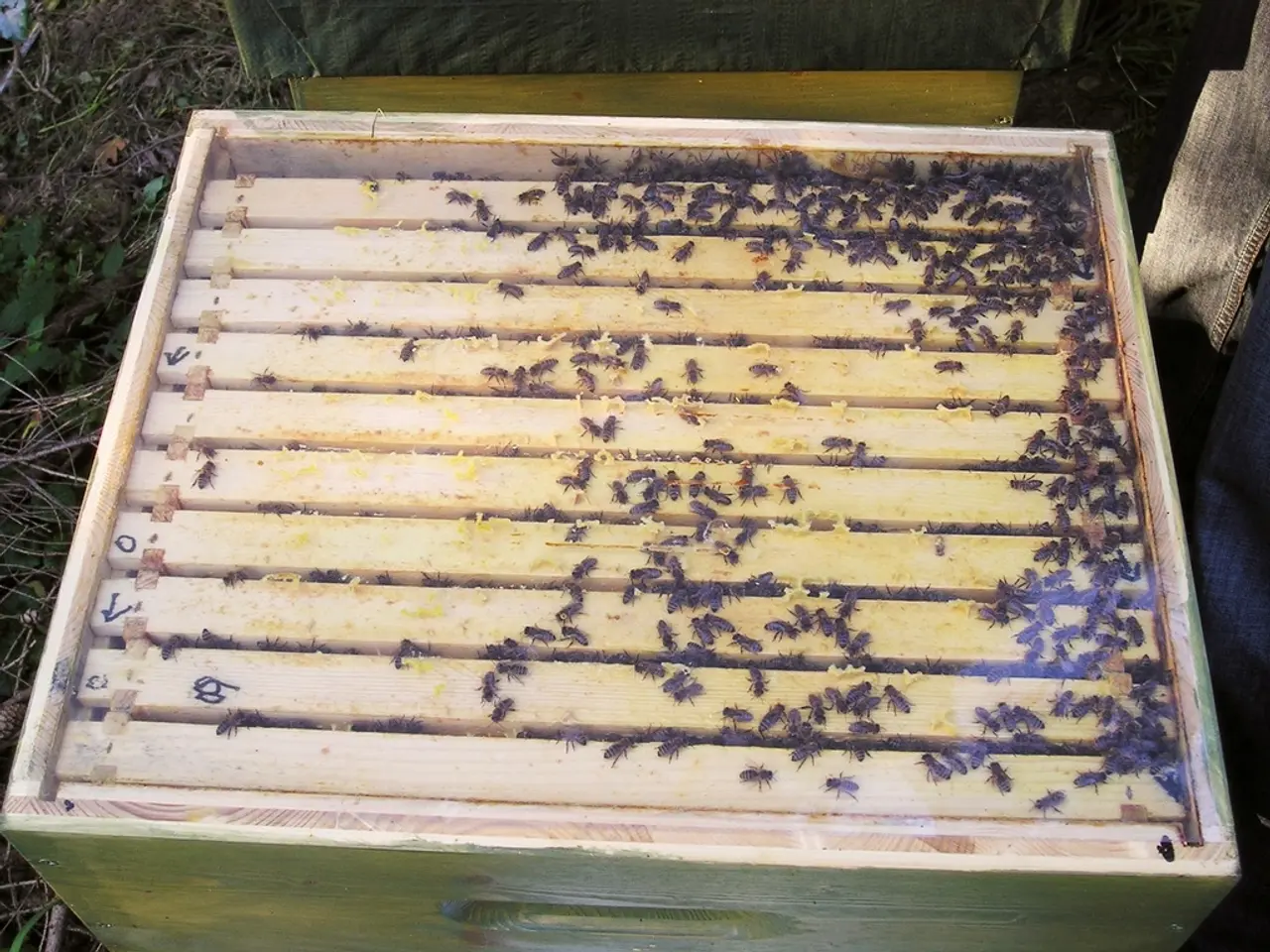Organic Strategies for Managing Garden Insects
Effective Natural Pest Control in Your Garden
Keeping pests at bay in your garden doesn't have to mean resorting to harmful chemicals. Embrace a balanced ecosystem approach that minimises chemical use and fosters a thriving garden. Here are some strategies to help you get started:
1. Plant Pest-Repellent Companion Plants
Introduce plants like marigold, basil, lavender, chrysanthemum, and mint into your garden. These plants naturally deter various pests by releasing chemicals that repel them [1][3].
2. Homemade Natural Sprays
Try making your own natural pest repellent sprays. Garlic spray, made by blending garlic with water and a mild soap, can repel aphids, beetles, caterpillars, among others. Neem oil, another option, acts as both a pest repellent and a mild fungicide [1][2]. Apply these sprays early in the morning or evening to prevent leaf burn and rotate them weekly to prevent resistance.
3. Encourage Biodiversity
Plant native plants and flowers to attract beneficial insects such as ladybugs, bees, and butterflies. These insects act as natural predators to pest insects, helping to maintain a healthy balance in your garden [4].
4. Practice Cultural Methods
Adopt practices like crop rotation yearly to reduce pest buildup, build healthy soil with compost to improve plant resilience, and maintain timely garden sanitation by removing infested plant material [2][4].
5. Use Physical Barriers
Protect seedlings from flying pests using row covers, and deter slugs and snails with copper tapes [2].
6. Regular Monitoring and Early Intervention
Inspect your plants weekly, looking for signs such as leaf holes, sticky honeydew, or small insects under leaves. Act early with natural methods to prevent major damage [1][4].
7. Additional Repellents
Spread cinnamon sticks, coffee grounds, chili powder for ants; cedar chips or lavender sachets for moths; and chili pepper around plants to deter rabbits [3].
Adopting this integrated approach, combining companion planting, natural sprays, habitat encouragement of beneficial organisms, physical barriers, and cultural controls, will maximise natural pest suppression while maintaining garden health and biodiversity [1][2][3][4].
Remember, guides related to the products mentioned are available to help you implement these strategies effectively in your garden. Happy gardening!
[1] Gardening Know How. (2021). Natural Pest Control: 10 Effective Methods. [online] Available at: https://www.gardeningknowhow.com/garden/pest/pests/natural-pest-control-methods.htm
[2] The Spruce. (2021). Natural Pest Control: Safe Ways to Keep Pests Away. [online] Available at: https://www.thespruce.com/natural-pest-control-methods-4143881
[3] HGTV. (2021). 10 Natural Pest Control Methods for Your Garden. [online] Available at: https://www.hgtv.com/design/outdoors/gardens/natural-pest-control-methods-for-your-garden
[4] National Gardening Association. (2021). Beneficial Insects and Pest Management. [online] Available at: https://www.garden.org/howto/beneficial-insects-and-pest-management/
Implementing a balanced approach to garden pest control can enhance your home-and-garden lifestyle by promoting a healthy ecosystem. For example, cultivate a variety of pest-repellent companion plants like marigold, basil, lavender, chrysanthemum, and mint in your home-and-garden to deter pests, or make homemade natural sprays using garlic or neem oil for effective pest control.





